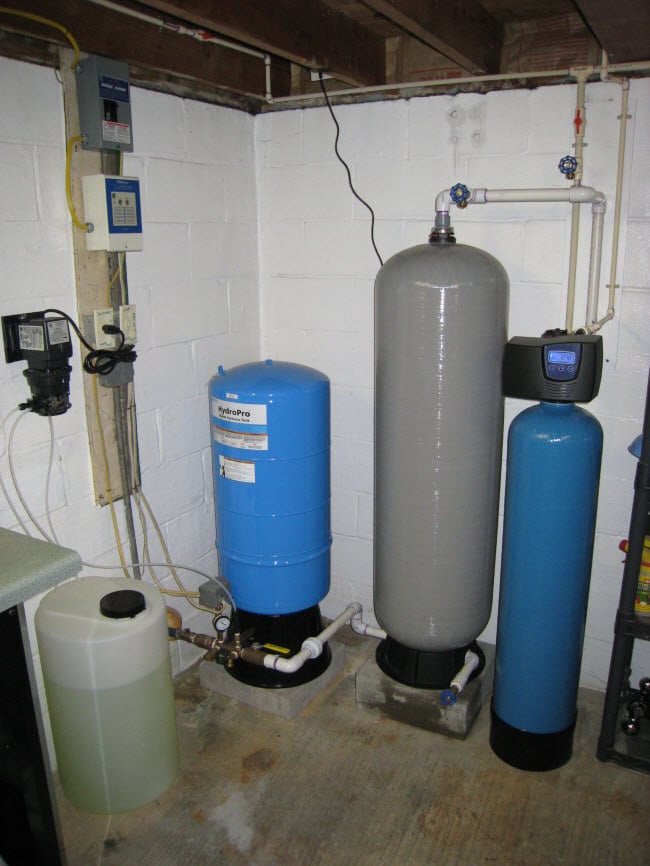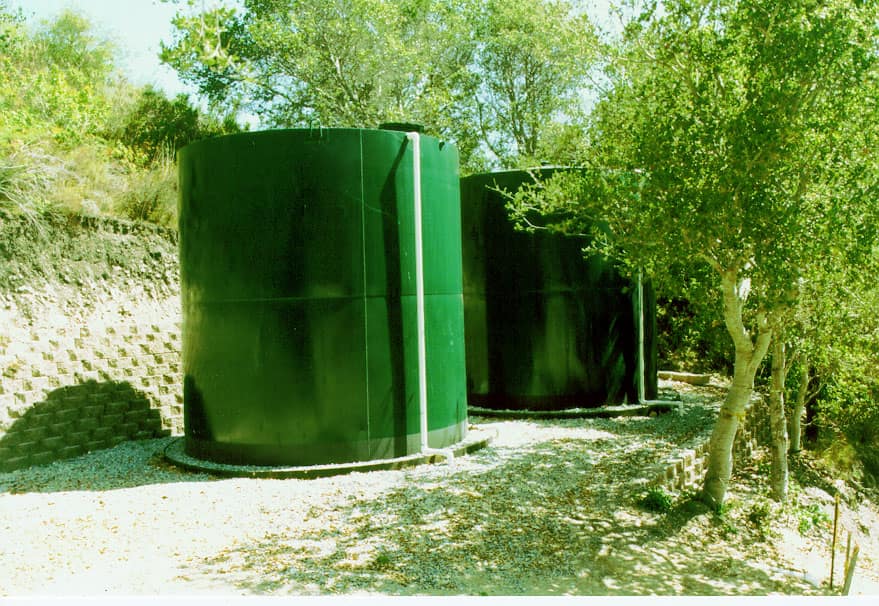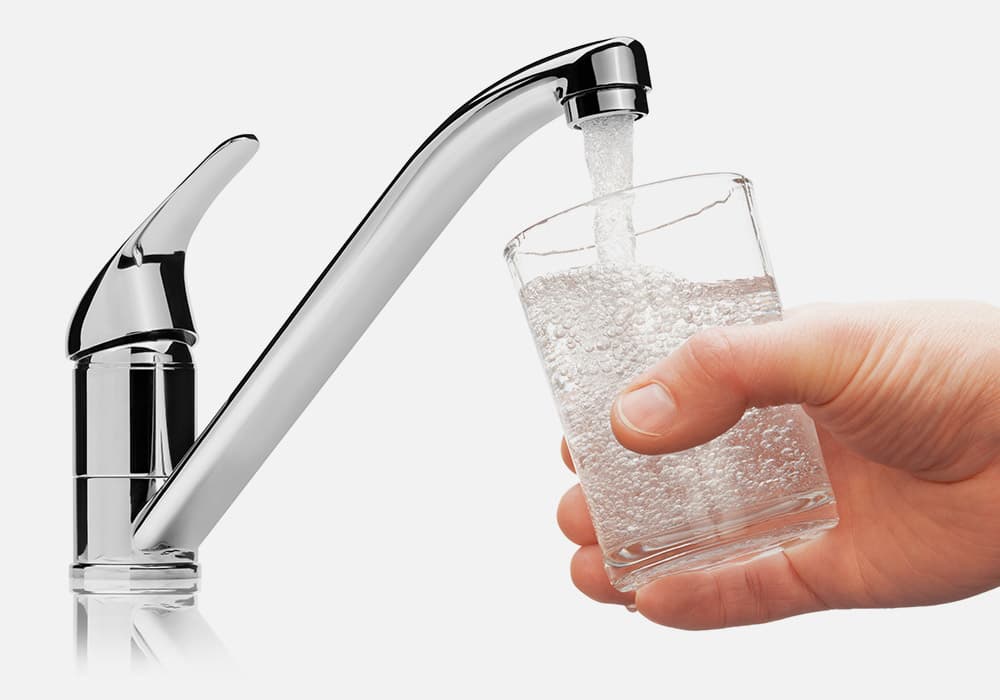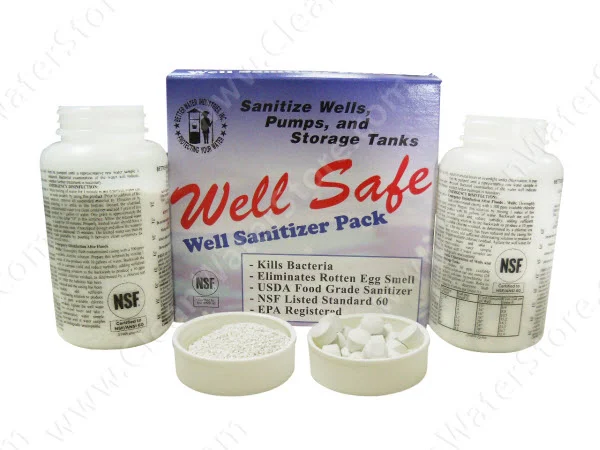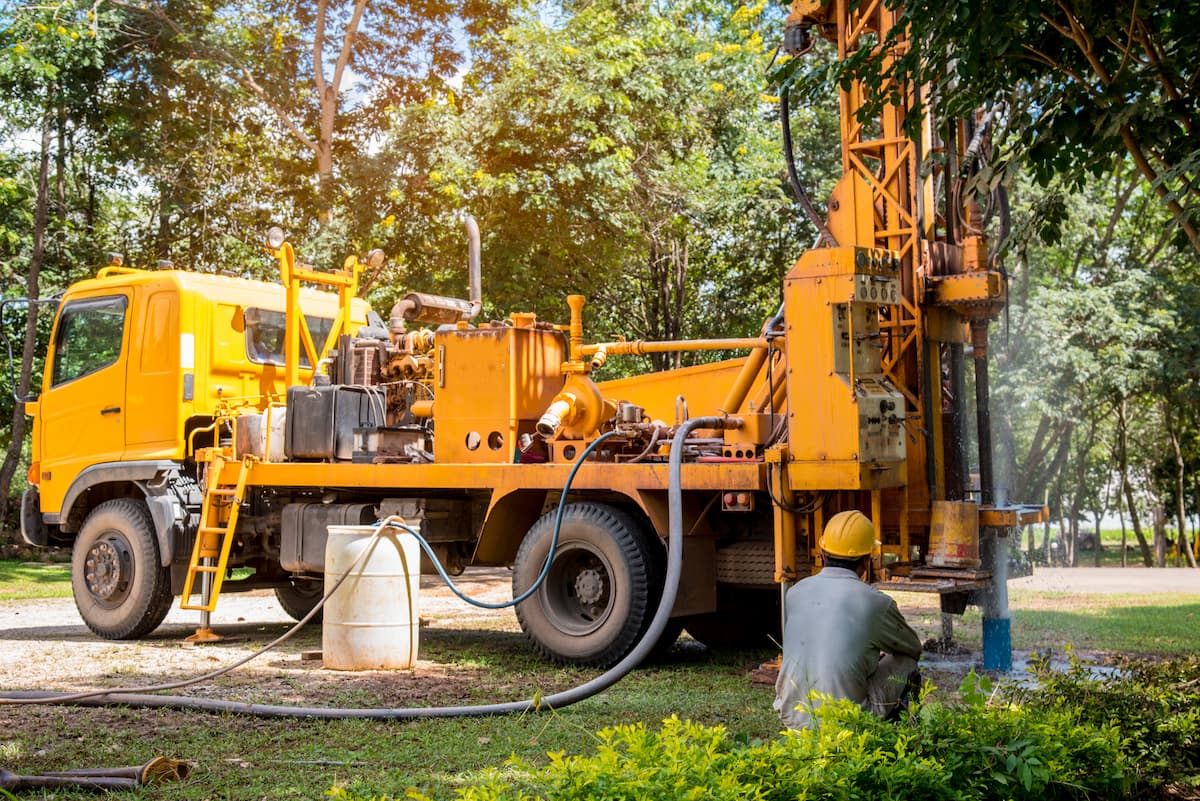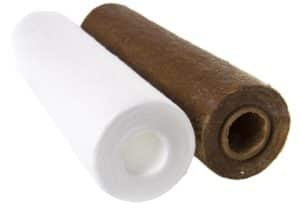Compare the Costs of Using Chlorine Vs Hydrogen Peroxide for Well Water Treatment
Why Use Hydrogen Peroxide for Well Water Treatment?
Hydrogen peroxide is a highly effective method for treating well water. It eliminates odors, kills bacteria, and oxidizes contaminants like iron and manganese. One popular technique involves injecting a small amount of peroxide (or chlorine solution) each time the well pump turns on. When combined with a backwashing catalytic carbon filter, this approach provides clean, disinfected, and odor-free water throughout the home.
Benefits Over Chlorine
Unlike chlorine bleach (sodium hypochlorite), hydrogen peroxide does not add salts or leave behind chemical residues. After interacting with water, it simply breaks down into oxygen and water, making it a cleaner alternative for ongoing use.
Comparing Cost: Peroxide vs. Chlorine
A common question we hear is: “Which is cheaper, chlorine or peroxide?”
At first glance, peroxide appears more expensive. Chlorine bleach typically costs $2 to $5 per gallon (at 5–7% strength), while hydrogen peroxide in a 7% solution can cost $10 to $14 per gallon.
However, peroxide works faster—almost twice as fast as chlorine. For example, oxidizing 1.0 ppm of iron may require 0.6 to 1.0 ppm of chlorine, but only 0.3 to 0.5 ppm of peroxide. This means you use less peroxide overall, which helps even out the cost.
A Long-Term Alternative to Bottled Water
While some may turn to bottled water to avoid well water issues, it’s often more expensive and less practical for long-term use. Hydrogen peroxide systems offer a more sustainable solution.
How to Save on Hydrogen Peroxide
You can save by purchasing peroxide locally in higher concentrations. For instance, we offer a safe-to-ship 7% peroxide solution. But local suppliers may carry stronger concentrations (15%–35%) at lower prices. These stronger solutions may need dilution and extra care when handling, but they can be more economical.
Understanding Well Water Treatment Systems
Well water treatment is essential for making private well water safe to drink. Unlike city water, private wells aren’t regulated, so it’s up to the homeowner to maintain them.
Well water treatment systems remove contaminants, bacteria, and impurities that affect taste, smell, and overall water quality. Installing a reliable water treatment system helps protect your family and provides clean, fresh water right from the tap.
Common Well Water Issues
Well water can be prone to various issues that affect its quality and safety. Some common well water issues include:
- Bacterial contamination: Bacteria such as E. coli and Total Coliforms can be present in well water, posing a risk to human health. Regular testing and treatment are essential to ensure safe drinking water.
- Nitrates: High levels of nitrates in well water can be harmful, especially to infants and pregnant women. Nitrates can enter the water supply from agricultural runoff or septic systems.
- Hard water: Well water can be hard, scaling and damaging appliances and plumbing. Hard water can also make it difficult to lather soap and can leave residue on dishes and clothing.
- Iron and manganese: High iron and manganese levels can cause discoloration, staining, and unpleasant odors in your water. These minerals can also affect the taste of your drinking water.
- Hydrogen sulfide: This gas can cause a rotten egg smell and taste in well water, making it unpleasant to use. Hydrogen sulfide can also corrode plumbing and fixtures.
- Sediment and particulate matter: Well water can contain sediment and particulate matter that can affect its clarity and quality. Sediment can clog pipes and reduce the efficiency of your water treatment system.
Water Filtration System for Well Water
Filtration systems are a reliable solution for treating well water. A home water filtration system helps provide clean, healthy water throughout the house. These systems use technologies like activated carbon, reverse osmosis, and ultraviolet (UV) light to remove impurities.
Household water filters are essential for maintaining water quality. You can install a house water filtration system at the point of entry (POE) or point of use (POU). This ensures clean drinking water from every tap and keeps all your water filters working effectively.
Some popular types of filtration systems for well water include:
- Whole house water filtration systems: These systems filter all the water in your home, providing clean drinking water at every tap. They are ideal for comprehensive water treatment, ensuring that every drop of water in your home is free from contaminants.
- Under-sink water filtration systems: These systems filter water at a single tap, providing clean drinking water for cooking and drinking. They are a cost-effective solution for targeting specific areas with the highest water quality.
- Water softeners: These systems remove minerals that cause hard water, making it easier to clean and reducing the risk of scale buildup. By softening your water, you can extend the lifespan of your appliances and enjoy softer skin and hair.
House Water Filtration System Options
Various household water filtration system options are available to address common well water issues. Some popular options include:
-
-
- Activated carbon filters: These filters are effective against chlorine, lead, and volatile organic compounds (VOCs). By removing these contaminants, they can improve the taste and odor of your water.
- Reverse osmosis (RO) systems: RO systems can remove up to 99% of contaminants, including dissolved solids and bacteria. They are highly effective in providing clean, safe drinking water.
- Ultraviolet (UV) light systems: UV light systems are effective against bacteria, viruses, and other microorganisms. They use UV light to disinfect water without adding chemicals.
- Ion exchange systems: These systems can remove heavy metals, nitrates, and other inorganic compounds from your water. They are particularly useful for treating water with high levels of specific contaminants.
- Salt-free water conditioners: Salt-free water conditioners can address hard water issues without using salt. They prevent scale buildup and extend the lifespan of appliances and plumbing.
-
Whole House Filtration Systems
Whole-house filtration systems are designed to provide comprehensive protection for your home’s water supply. These systems can:
- Up to 99% of contaminants can be removed: Whole-house filtration systems effectively remove dissolved solids, bacteria, viruses, and other contaminants from water, ensuring high water quality throughout your home.
- Improve water quality and taste: These systems can remove impurities, enhancing the taste and odor of water, making it more enjoyable to drink, cook, and bathe.
- Protect appliances and plumbing: Whole-house filtration systems can prevent scaling and damage to appliances and plumbing, extending their lifespan and reducing maintenance costs.
- Provide peace of mind: Knowing that your entire home’s water supply is treated and safe can give you peace of mind, ensuring the health and well-being of your family.
Chlorine vs Hydrogen Peroxide: Overview
Chlorine and hydrogen peroxide are two common disinfectants used in well water treatment systems, with chlorine solution being a widely used method for ensuring safe drinking water. Chlorine is a widely used disinfectant that kills bacteria and other microorganisms, but it can also leave a strong chlorine smell and taste in the water. Hydrogen peroxide, on the other hand, is a natural disinfectant that is gentler on the water and does not leave a strong smell or taste. Both options are effective in ensuring water quality, but they have different characteristics that may influence your choice depending on your specific needs and preferences.
Chlorine Disinfection
Chlorine can:
- Kill bacteria, viruses, and other microorganisms: Chlorine is highly effective at disinfecting water, making it safe for consumption by eliminating harmful pathogens
- Oxidize iron and manganese: Chlorine can help reduce the discoloration and staining caused by high iron and manganese levels in water.
- Improve water taste and odor: Chlorine can improve the overall taste and odor of water by oxidizing contaminants.
However, chlorine can also have drawbacks, such as:
- Unpleasant taste and odor: Some homeowners find the chlorine smell and taste in their water to be unpleasant.
- Damage to hair and skin: Chlorine can be harsh on hair and skin, leading to dryness and irritation.
Understanding the benefits and drawbacks of chlorine disinfection can help you decide whether it is the right choice for your well water treatment needs.
Costs of Chlorine vs Hydrogen Peroxide
The cost of chlorine solution and hydrogen peroxide can vary depending on the type and quantity of the disinfectant used. Chlorine is generally less expensive than hydrogen peroxide, but it may require more frequent replacement and maintenance. For instance, chlorine bleach typically costs $2 to $5 per gallon, containing 5% to 7% chlorine. However, it can leave a residual chlorine smell and taste, which some homeowners find unpleasant.
Hydrogen peroxide, on the other hand, may be more expensive upfront, with costs ranging from $10 to $14 a gallon for a 7% peroxide solu
tion. Despite the higher initial cost, hydrogen peroxide can last longer and require less maintenance. It acts approximately twice as fast as chlorine, meaning you need less of it to achieve the same level of disinfection. This efficiency can offset the higher purchase price, making hydrogen peroxide a competitive option for well water treatment.
By considering both the initial costs and long-term maintenance expenses, you can make an informed decision that best suits your water treatment needs.

